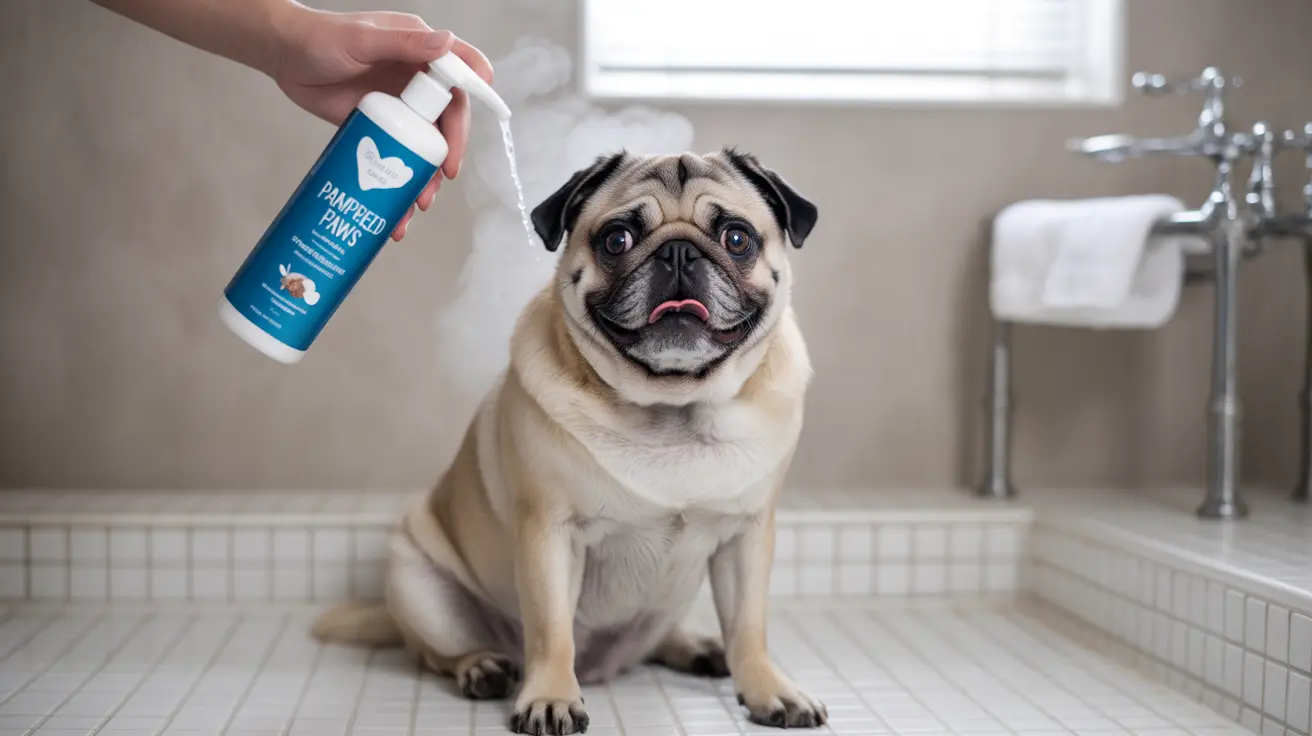When it comes to keeping your furry friend clean and well-groomed, you might wonder if you can use regular human conditioner on your dog. The short answer is no – human conditioners can be harmful to your dog's skin and coat. Let's explore why dog-specific products are essential and what you need to know about proper canine coat care.
Understanding the unique needs of your dog's skin and coat is crucial for maintaining their health and comfort. Dogs have fundamentally different skin chemistry and sensitivities compared to humans, making specialized care products necessary for their wellbeing.
Understanding Canine Skin and Coat Biology
Dogs' skin structure is notably different from human skin in several important ways. Their skin is thinner and more sensitive, with a higher concentration of hair follicles per square inch. Additionally, dogs maintain a more neutral pH balance (6.2-7.4) compared to human skin's acidic nature (5.5-6.5).
This distinct biology means that products formulated for human use can seriously disrupt your dog's natural skin barrier and cause various problems.
Why Human Conditioners Are Dangerous for Dogs
Human conditioners contain numerous ingredients that can harm your dog's skin and overall health:
- Artificial fragrances and dyes that may trigger allergic reactions
- Harsh chemicals like sulfates that strip natural oils
- Preservatives that can irritate sensitive skin
- Silicones that can trap dirt and cause matting
- Ingredients that may be toxic if ingested through licking
Choosing the Right Dog Conditioner
When selecting a conditioner for your dog, look for products specifically formulated for canine use. The best options will:
- Be pH-balanced for dog skin
- Contain natural moisturizing ingredients
- Be free from artificial fragrances and dyes
- Include gentle, dog-safe preservatives
- Feature ingredients that support coat health
Signs of Conditioner-Related Skin Problems
If you've used human conditioner on your dog, watch for these warning signs:
- Excessive scratching or itching
- Skin redness or inflammation
- Dry, flaky skin
- Excessive shedding
- Dull or greasy coat
- Hot spots or skin infections
Safe Conditioning Practices for Dogs
Follow these guidelines for safe and effective coat conditioning:
- Always use dog-specific products
- Dilute conditioner according to package instructions
- Avoid getting product in eyes or ears
- Rinse thoroughly to prevent residue buildup
- Pat dry gently with a clean towel
- Brush through coat while damp to prevent tangles
Frequently Asked Questions
Can I safely use human conditioner on my dog's coat and skin?
No, human conditioners are not safe for dogs due to different pH levels and potentially harmful ingredients that can irritate their sensitive skin or cause toxic reactions if ingested.
Why is human conditioner harmful to a dog's skin and pH balance?
Human conditioners are formulated for acidic human skin (pH 5.5-6.5), while dogs have more neutral skin (pH 6.2-7.4). Using human products disrupts this balance, potentially leading to skin problems and infections.
What are the risks of using human hair conditioner on dogs?
Risks include skin irritation, allergic reactions, pH imbalance, stripped natural oils, bacterial infections, and potential toxicity if the dog licks the product.
How do dog conditioners differ from human conditioners in terms of ingredients?
Dog conditioners are specifically formulated with gentler ingredients, appropriate pH levels, and without harmful chemicals like artificial fragrances, sulfates, and silicones that are common in human products.
When should I use a dog-specific conditioner and what should I look for?
Use dog conditioner after shampooing, especially for dogs with dry, sensitive skin or long coats. Look for products with natural ingredients, appropriate pH balance, and avoid artificial fragrances and harsh chemicals.
Conclusion
While it might be tempting to use human conditioner on your dog, it's crucial to stick with products specifically formulated for canine use. Your dog's unique skin and coat needs require specialized care to maintain optimal health and prevent potential complications. Invest in quality dog-specific grooming products and consult with your veterinarian if you have specific concerns about your dog's coat care needs.






